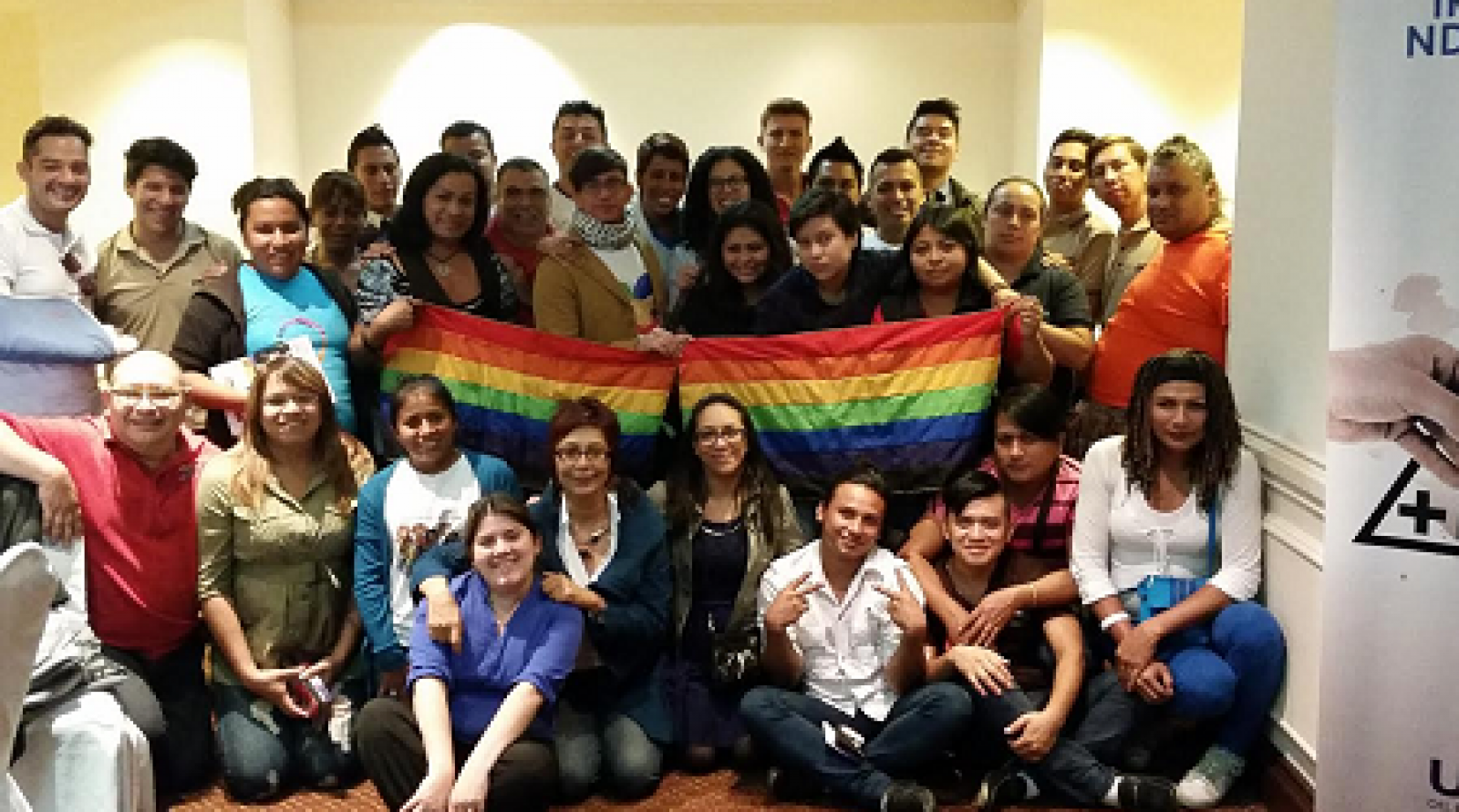
SHARE
LGBTI (lesbian, gay, bisexual, transgender and intersex) groups, both in Central America and elsewhere, face a common challenge: how to build coalitions around a common cause among diverse people and groups who do not always share the same needs or goals.
Although members of LGBTI communities are generally lumped together, the populations behind each letter are diverse and may be pushing to advance different issues. For example, many lesbian, gay and bisexual advocacy groups focus on marriage equality, whereas transgender groups often advocate for gender identity laws, an issue that does not directly affect the “L,” “G” or “B” communities. In Guatemala and Nicaragua, LGBTI groups argue that these tensions between groups within the larger community often weaken organizations and put their missions at risk.
To support LGBTI leaders in forming a stronger, unified voice on equal rights, NDI hosted an exchange in Guatemala City from July 15 to 17. During the exchange, activists and experts from Nicaragua and Guatemala discussed topics ranging from coalition building to crafting social media advocacy strategies, and witnessed the first political debate on LGBTI issues held in Guatemala.
The Nicaraguan activists emphasized that every LGBTI group should begin with the principles of respect and inclusion and the recognition that, despite members’ differences, they are all working toward the same goal of dignity and equality. “We are stronger together,” noted Marvin Mayorga, director of the Institute for Sexual Diversity Human Rights (Iniciativa desde la Diversidad Sexual por los Derechos Humanos, IDSDH). “We must take on each other’s causes as our own. There is no hierarchy; no one population’s cause is more important than another’s.”
In terms of spreading a shared message and gaining support for LGBTI rights, presenters and participants agreed that the first step of any campaign is making the LGBTI community more visible and educating the general population about what it means to be LGBTI.
“We want people to understand, for example, what it means to be a transgender woman, because as humans we tend to discriminate against people or things we don’t understand,” said Venus Caballero Lopez, executive director of the Organization for Transgender People (Organización de Personas Transgéneras, ODETRANS). She stressed that awareness campaigns do not have to be expensive, and showed an example of a short video that her group had created on a small budget. “If you have a social media account and a camera, you can spread your message. Many LGBTI organizations are underfunded, but we shouldn’t use that as an excuse not to be active,” she added.
NDI Guatemala arranged for six candidates from five political parties to participate in a debate on LGBTI issues in the upcoming elections, followed by audience questions. The debate was the first of its kind to take place in Guatemala, and offered Guatemalans the chance to learn candidates’ stances on key LGBTI issues, such as gender identity laws, anti-discrimination ordinances and violence prevention.
The debates also provided a unique opportunity for the Nicaraguan participants to witness political debates, which are not held during Nicaraguan elections. The Nicaraguan activists later said that watching these debates helped them generate ideas for bringing LGBTI issues into the electoral context for the 2016 elections.
Representatives from Guatemalan LGBTI groups reported that this was the first time that they had been offered a space to communicate with politicians, and expressed the hope that it represented the beginning of a conversation on LGBTI issues in Guatemalan politics.
Funding for LGBTI programming in Nicaragua and Guatemala is provided by the U.S. Agency for International Development. The Guatemala program was implemented in collaboration with the International Republican Institute and the International Foundation for Electoral Systems.
To learn more about NDI's work with LGBTI communities, click here.
Published on August 5, 2015


